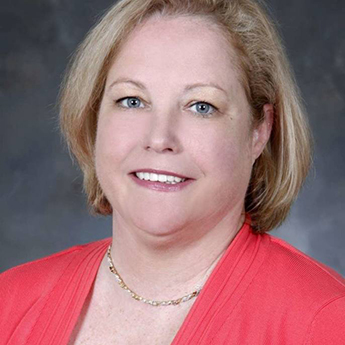Compliance with Stop Payments vs Unauthorized Transactions
Customer service, frontline, and operations staff struggle each day with the question – “What does my account holder want me to do…Stop this payment, and return it, they revoked it, -- what are my next steps?” This training program will help find answers to these struggles. These are still the number one issues in the exception processing of ACH transactions on a daily basis. Specific rules identify how to handle stop payments and unauthorized or revoked transactions. This session will detail how to remain compliant with the NACHA Operating Rules.
- Define the rules surrounding stop payments
- Identify the difference in the rules between a consumer and non-consumer stop payment
- List tips that will help customer service and frontline staff ensure they are asking the right questions of the account holder
- Outline what an unauthorized transaction is and when to use a Written Statement of Unauthorized Debit (WSUD)
- Review timeframes for stop payments and unauthorized payments
- Illustrate what constitutes an entry to be returned as authorization revoked vs. stop payment vs. unauthorized
- Describe through the use of scenarios – the what, when, and how of stopping payments and returning unauthorized entries
- Elements required for the WSUD – according to the NACHA Operating Rules
- What is an unauthorized transaction, what timeframe to return, and when do you need a completed and signed WSUD
- What is Authorization Revoked – what does this mean to me as a financial institution when returning an entry?
- When do I use the return reason code R07-Authorization Revoked?
- Warranties of the RDFI when transmitting extended return entries
- Specific rules regarding stop payments for consumer vs corporate accounts
- Timeframe for a stop payment (single and recurring entries)
- Responsibilities and warranties of the RDFI for stop payments
- Identify when to use a Stop Pay Form and when a Written Statement of Unauthorized Debit (WSUD) is necessary
Do you often wonder when to use a Stop Pay Form and when to use a Written Statement of Unauthorized Debit (WSUD)? This session will take on these questions and others. The webinar instructor will provide scenario examples such as your account holder saying they want you to stop payment, or if they revoked it – why is their account being debited or they never authorized a payment that is already posted to their account.
The NACHA Operating Rules have specifics for you to follow to be sure you are in compliance each time you help your account holder with their request(s). Learn what form to use and when and why? What questions and conversations should be taking place between the account holder and the customer service or frontline staff working with them?
Key points illustrated in the program in the form of case studies will assist customer service and front-line staff as well as identify details for operations staff. This 90-minute session will definitely help clear things up on processing unauthorized, authorization revoked and stopped payments.
- Financial Institution Professionals
- Operations Staff
- Banking Operations Managers and Staff
- Compliance and Risk Professionals
- Treasury Management Professionals
- Aspiring and Current AAPs (Accredited ACH Professionals)
- Payroll Processors
- Company/Business Owners (Originators)
- Banking Managers/ Supervisors
- Third-Party Service Providers and Third-Party Senders
- Audit and Compliance Personnel/Risk Managers
Donna K Olheiser, AAP, is the vice president of Education Services and founder of Dynamic Mastership, LLC. Donna is an enthusiastic and energetic Certified Master Trainer with over 14 years’ training experience. She has designed and facilitated over 100 training sessions each year with her expertise being the rules for companies and financial institutions when processing specifically ACH electronic payments, then scheduling the training events to facilitate/deliver the material through a variety of venues (webinars, teleseminars, in-person workshops, including regional and national conferences). Donna has over 24 years of experience in the financial services industry which includes 9 years’ experience as the education service director at a Regional Payments Association (RPA), where she managed and facilitated the entire education program for nearly 800 financial institution members. Prior to that, Ms. Olheiser spent 14 years in various departments with the Federal Reserve Bank of Minneapolis and also holds the Accredited ACH Professional (AAP) designation (achieved in 2004).
Upcoming Webinars














































































